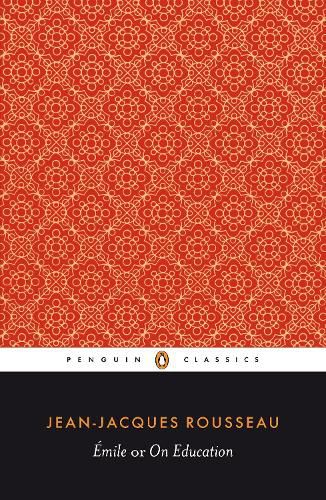Readings Newsletter
Become a Readings Member to make your shopping experience even easier.
Sign in or sign up for free!
You’re not far away from qualifying for FREE standard shipping within Australia
You’ve qualified for FREE standard shipping within Australia
The cart is loading…






Educators as well as students of philosophy will find much to admire in Rousseau’s still fresh and innovative ideas.
In his pioneering treatise on education the great French philosopher Jean-Jacques Rousseau (1712-1778) presents concepts that had a significant influence on the development of pedagogy in the eighteenth century, and yet many of his ideas still sound radical today. Written in reaction to the stultifying system of rote learning and memorization prevalent throughout Europe at the time, Emile is a utopian vision of child-centered education, full of the sentiments of Romanticism, a movement that Rousseau inspired.
Imagining a typical boy named Emile, Rousseau creates an ideal model of one-on-one tutelage from infancy to manhood with himself as the child’s mentor. As in so many of his other famous works, here, too, Rousseau asserts his main thesis that human beings are by nature good; it is only the distorting influences of civilization that have corrupted them.
$9.00 standard shipping within Australia
FREE standard shipping within Australia for orders over $100.00
Express & International shipping calculated at checkout
Educators as well as students of philosophy will find much to admire in Rousseau’s still fresh and innovative ideas.
In his pioneering treatise on education the great French philosopher Jean-Jacques Rousseau (1712-1778) presents concepts that had a significant influence on the development of pedagogy in the eighteenth century, and yet many of his ideas still sound radical today. Written in reaction to the stultifying system of rote learning and memorization prevalent throughout Europe at the time, Emile is a utopian vision of child-centered education, full of the sentiments of Romanticism, a movement that Rousseau inspired.
Imagining a typical boy named Emile, Rousseau creates an ideal model of one-on-one tutelage from infancy to manhood with himself as the child’s mentor. As in so many of his other famous works, here, too, Rousseau asserts his main thesis that human beings are by nature good; it is only the distorting influences of civilization that have corrupted them.